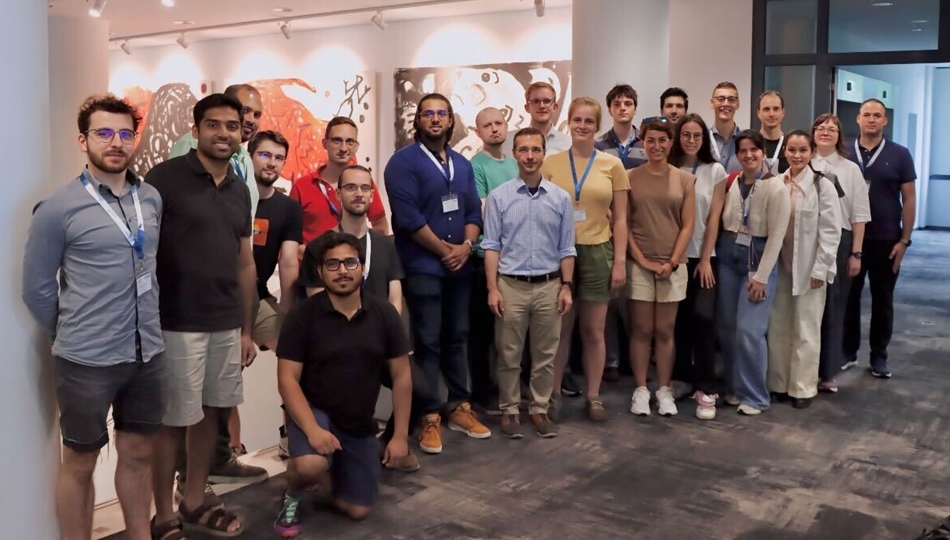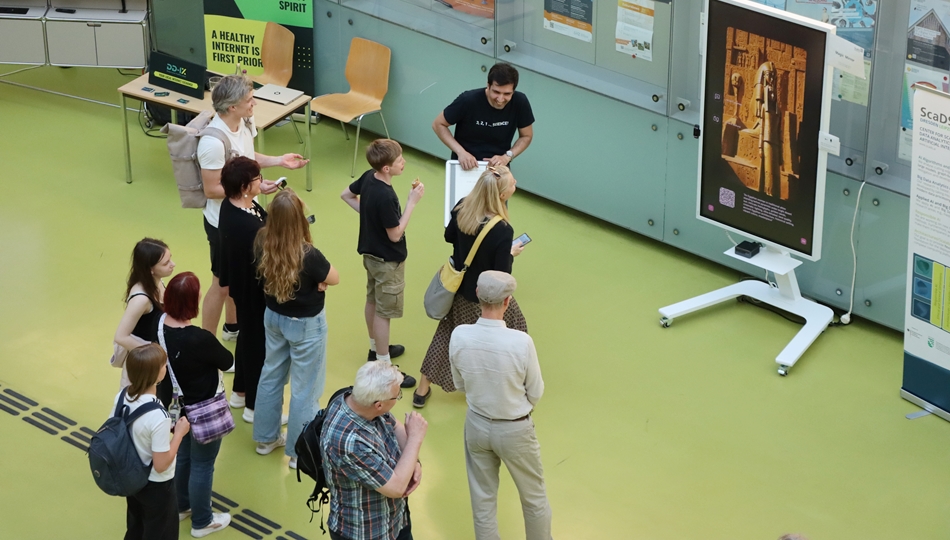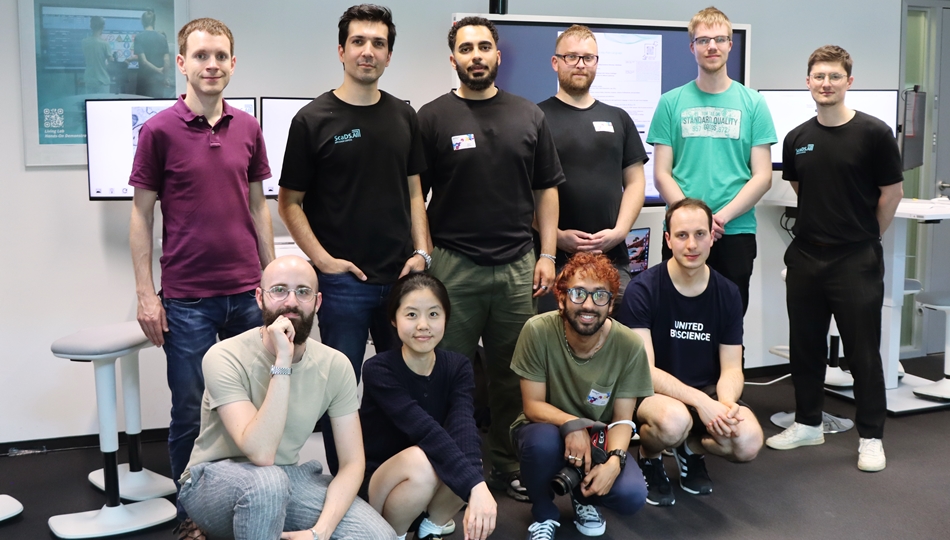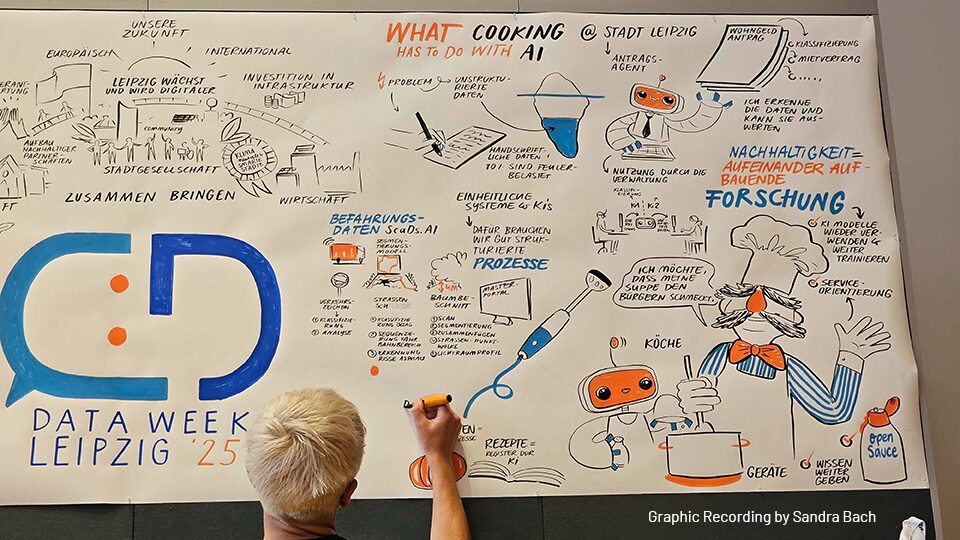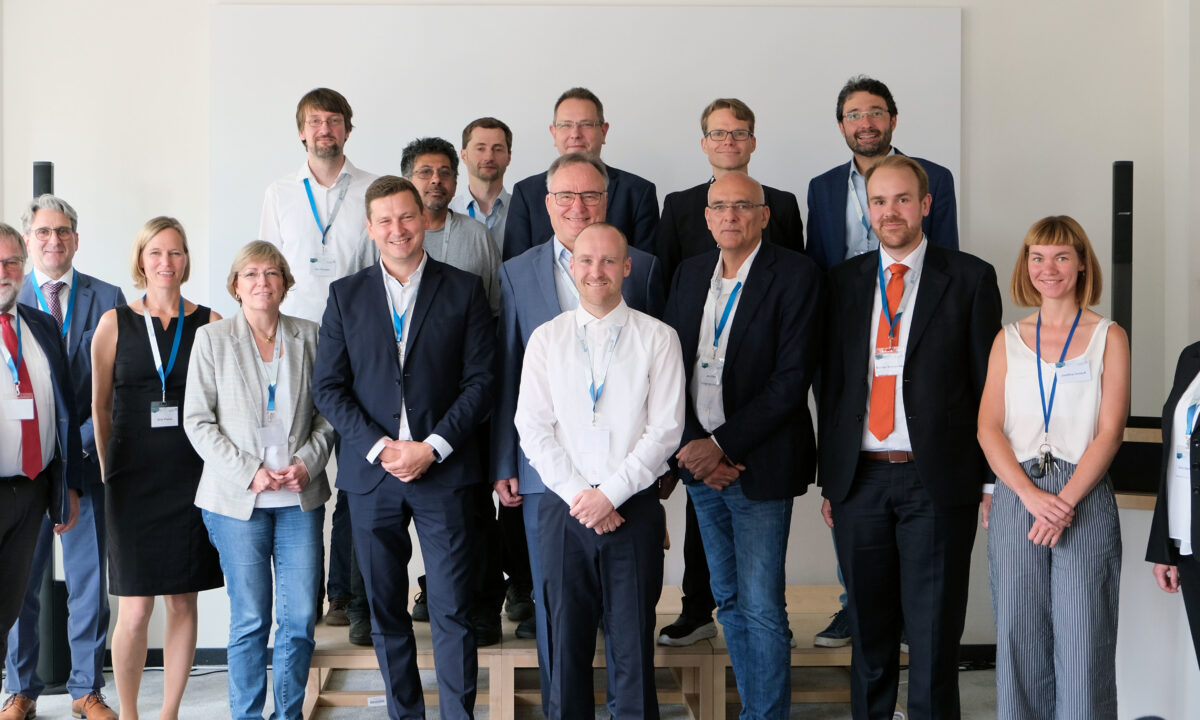
30. June 2023
Parliamentary State Secretary Mario Brandenburg visits ScaDS.AI

On June 30th 2023, we welcomed the Parliamentary State Secretary for Education and Research (BMBF), Mario Brandenburg, on his tour of the German AI centers, as well as Michael Schmischke, Head of the Minister’s Office, and Walter Kühme, Head of the Department for Universities and Art Colleges (SMWK).
Program
First, there was a brief welcome by Mario Brandenburg and Prof. Jens Eilers, Prorector for Development of Excellence: Research and Transfer at Leipzig University. Afterwards, Prof. Dr. Wolfgang E. Nagel introduced ScaDS.AI Dresden/Leipzig and its excellent status in Germany. The introduction was followed by six ten-minute presentations on selected research activities. Up first, Prof. Dr. Erhard Rahm gave some insights into the research area Big Data Analytics and Engineering. The principal investigators of ScaDS.AI Dresden/Leipzig followed up with exciting insights into the latest developments and successes of their research areas.
Living Lab
The second part of the visit consisted of an introduction by the Administration Director of ScaDS.AI Dresden/Leipzig, Dr. Eric Peukert, and a tour through the Living Lab in Leipzig. The Living Lab team showed how AI technology is solving complex tasks in various social and economic areas:
smart Mirror – Fashion E-Commerce
Object recognition is part of automated image processing (computer vision), which today is based almost exclusively on neural networks (deep learning) and is used in many areas. For example, every modern smartphone uses similar technologies to sort images and recognise faces. Many online shops use similar technologies to make meaningful product suggestions to their customers (recommendation engines).
PINN for Additive Manufasturing / 3D Printing
Selective laser melting is used in industry to print metal components. The process is relatively inefficient due to high resource consumption and post-print quality control. For example, printing one part can take from several hours up to several days. Automatic early detection of defective layers will make 3D printing more profitable and sustainable.
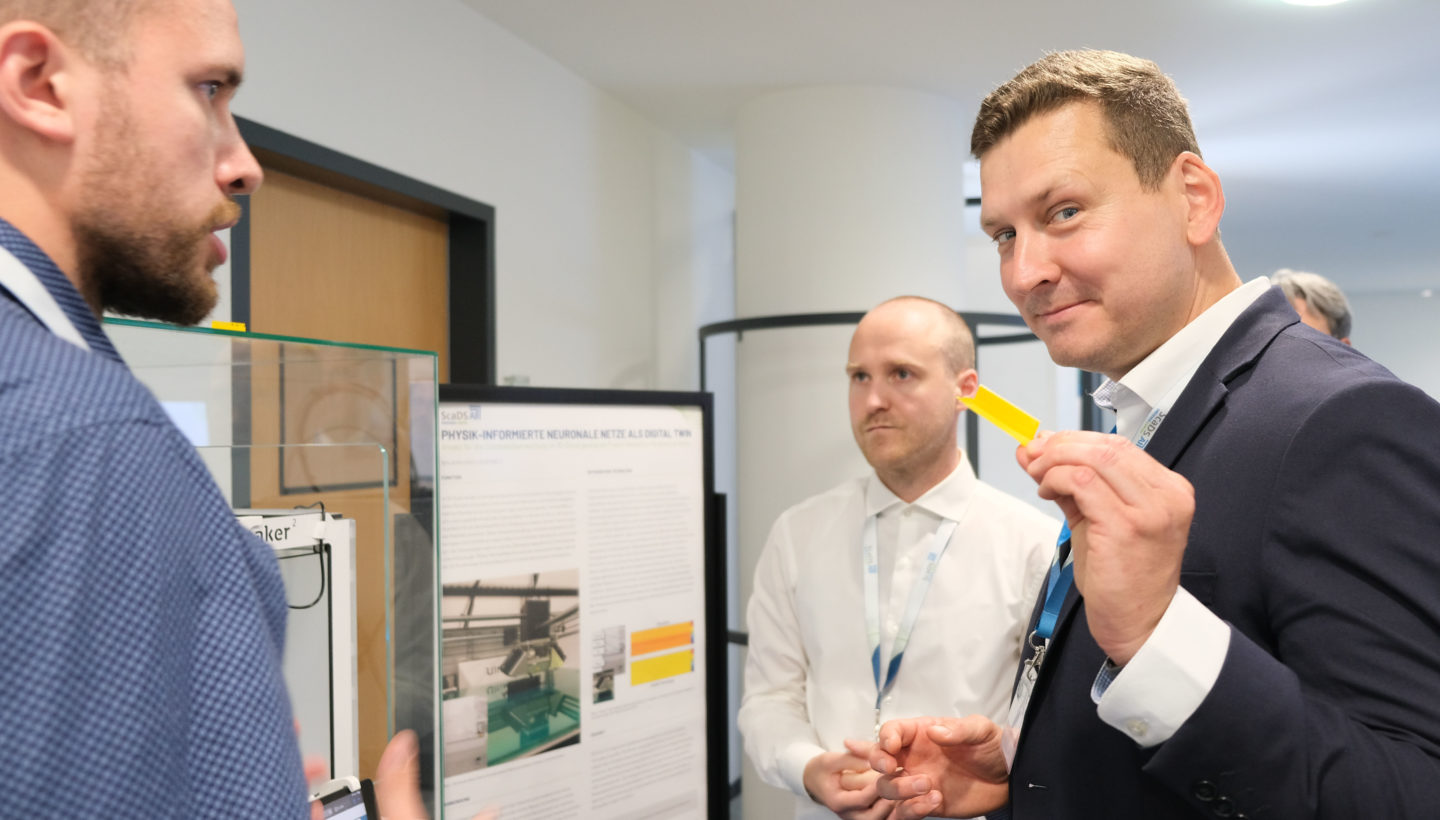
Reinforcement-Learning in Autonomous Driving
With an ever-growing interest in machine learning applications in a connected world, Reinforcement Learning (RL) occupies a unique position. It can learn and perform tasks in uncertain and complex circumstances. The goal is for an agent to maximize the long-term reward by performing actions in the environment. Typical real-world applications of RL include:
- self-driving vessels,
- traffic flow optimization and
- playing games like Starcraft or Go on a super-human level.
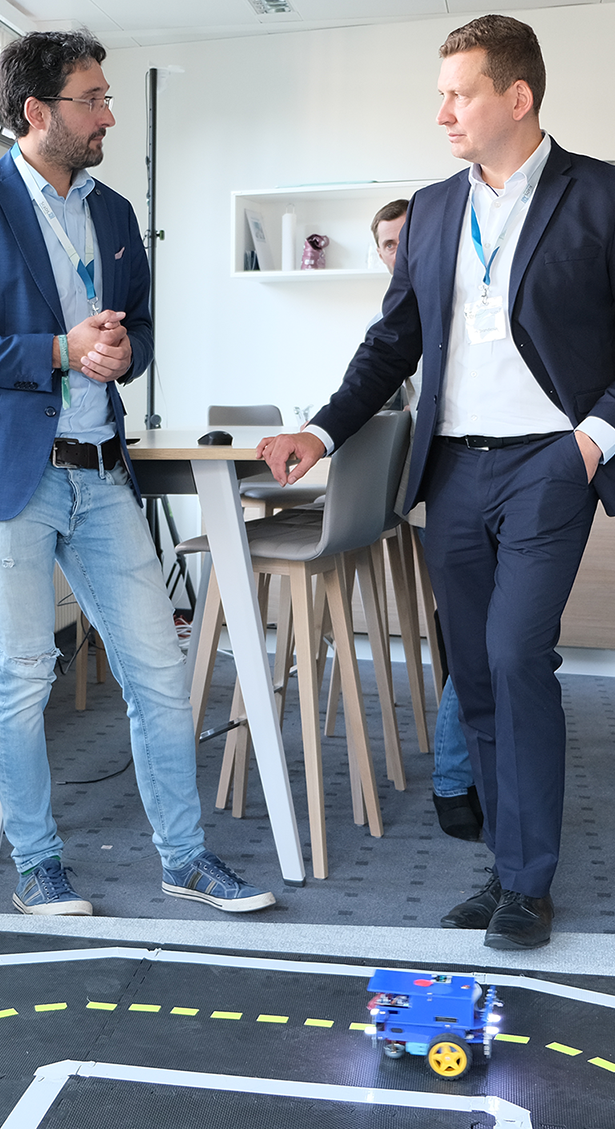
asanAI
asanAI enables the user to develop an AI without having to write a single line of code. With this application, models can be created and trained in the browser without the need for installation on a local computer. Furthermore, the (trained) models can be exported directly to Python code, Node JS code, and HTML code.
BMBF – Bundesministerium für Bildung und Forschung
The Federal Ministry of Education and Research (BMBF) is a government institution responsible for promoting education, research and technological development in Germany. The BMBF recognizes the transformative potential of Artificial Intelligence (AI) and its significant impact on various sectors of society. In response, the BMBF has developed a comprehensive AI strategy to promote the research, development, and implementation of AI technologies in Germany. ScaDS.AI Dresden/Leipzig, the Center for Scalable Data Analytics and Artificial Intelligence, is one of five national competence centers for artificial intelligence, funded by the BMBF and established as permanent research facilities for AI, data science and big data.

